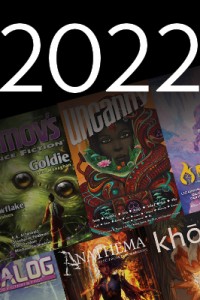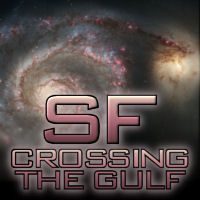Christopher Brown: Gonzo Transgressive

CHRISTOPHER TRACY BROWN was born June 10, 1964 in Des Moines IA. He grew up there, then went to Phillips Exeter, a prep school in New Hampshire, for high school (where his classmates included author Dan Brown; no relation). He spent a gap year traveling in Europe and working in Washington DC, then attended college at Tulane University in New Orleans, studying political economy, and spent a year at Oxford University studying philosophy, politics, and economics. After another year in Washington, he attended law school at the University of Iowa on a Harry S. Truman Scholarship. During college he was an editor for the school paper and a stringer for Newsweek, and did freelance journalism and non-fiction through law school. He went on to work in the US Senate and as a lawyer for technology companies, eventually settling in Austin TX, where he became an active member of the Turkey City Writers Workshop.
He began publishing short fiction in 2004 as Chris Nakashima-Brown, and has since produced more than twenty-five stories. As Chris N. Brown he co-edited World Fantasy Award finalist Three Messages and a Warning: Contemporary Mexican Short Stories of the Fantastic (2011, with Eduardo Jiménez Mayo).
As Christopher Brown he published debut novel Tropic of Kansas (2018), a Campbell Memorial Award finalist. Rule of Capture (2019) launched the Dystopian Lawyer series of SF legal thrillers, followed by Philip K. Dick award nominee Failed State (2020).
Excerpts from the interview:
“I did a lot of work as a freelance writer of journalism and non-fiction, but after I finished law school the writing was strictly fiction. My interest in writing fiction really started in college. My senior year in college I had been doing all of this journalism, and then there were some particular novels that I really connected with, including J.G. Ballard’s novel Crash. I had my brain cracked open by that. The copy I had included his famous introduction to the French edition of Crash, which was a manifesto about the possibility of what science fiction could do if you really tried to point it in the direction of the radical truths of real contemporary life – the ‘Earth is the alien planet’ stuff. I had been reading a lot of Walker Percy, who was a big youthful influence on me in college, and he wrote some stuff that was nominally apocalyptic. He had this Walker Percy version of a cozy catastrophe novel Love in the Ruins. I read Neuromancer and Mirrorshades in my last semester my senior year in college, and it was just like, ‘Oh, wow.’ The idea of the content of science fiction coupled with gonzo style. I was reading all this journalism I was super hooked on, especially Hunter S. Thompson and Joan Didion and those kinds of New Journalism voices. The idea of taking that energetic voice full of stylistic freedom and joining it together with the futuristic energy and imaginative power and sense of wonder of science fiction tremendously excited me. I thought, ‘I want to do this.’ How I got from there to writing novels was a much longer process.
“In college and in law school I was really focused on government and politics and public affairs, and I studied a lot of political theory and economics. I had gotten a scholarship as an undergrad for students who demonstrated reasonable academic potential and a strong commitment to public service, so that paid my way through my last two years of undergrad and my first two years of the grad school of my choice, which ended up being law. I went to law school partly because they were going to pay for me to study law, and they wouldn’t have paid for me to study journalism or to get an MFA. I went to Washington after I graduated from college, just shacked up with friends and pounded the pavement until I got a job working for a senator from Rhode Island. Then I went to law school, and after law school I landed a job on the Senate Judiciary Committee staff, which was quite a trip, because my first project after law school was to be one of the staff lawyers on the Senate Judiciary Committee during the Clarence Thomas hearings, which was quite a surreal experience.
“I was like a C-SPAN extra – I didn’t have much that I was supposed to do. I read a lot of the nominee’s opinions and speeches and all that stuff, and wrote reports, and would occasionally help write a question or two, but mostly I just got to have the best seat in the house – including being able to go backstage and hear the senators swearing at each other, and watching the surreal scene of these freaks like Strom Thurmond and Ted Kennedy eating deep-dish pizza and watching themselves on TV. Or watching Dana Carvey play them on TV as somebody brought in a tape from Saturday Night Live that had aired the night before. Being in those corridors of power was really illuminating and very beneficial, too. It shows up a lot in my own writing, because once you’ve seen those things you gain an appreciation for how those institutions really work at every level, and the actual personalities of insanely powerful people – as real people with all their quirks, the things they do in private, and their weaknesses and their insecurities. You learn not to be intimidated by anybody, no matter their stature, and to see them all as real people. At the same time, I’d be sitting there in these hearings, scribbling nuggets of weird stories on the little yellow legal pad when I was supposed to be working.
“I worked in the Senate for a few years, but then I got married and decided I needed to be more financially responsible, because those government jobs, especially on Capitol Hill, don’t pay especially well. It was early in the days of the web, when there was one browser, and the idea of websites with photographs was just like, ‘Wow, this is amazing.’ I had a buddy with a business doing editorial services for the big NGOs, the UN and the World Bank and the IMF. I was doing a lot of work for him on the side as a freelance writer to supplement my modest government salary, and I had the journalistic background and the economics background so I could help him do that intensely specialized content for a general audience. He was starting a web version of his stuff, so I went to help him set that up.
“When I found out I was going to be a dad, the idea of working in a startup web business was a little more scary, so I didn’t really know what I was going to do. I had started reading Wired magazine because I saw it in this Capitol Hill newsstand, and on the first issue they had Bruce Sterling on the cover. I had been reading him, so I picked up an issue of Wired and found out about an interactive television startup in my hometown of Des Moines that was getting ready to go public. I made a lateral move into the technology business early on, to this software company in my hometown. It was a more science fictional job, and I had this interest in SF – when I was in DC I did a couple of workshop classes and started writing stories. I got a really good response from the teacher, who later went on to have a decent career writing YA fantasy novels. The stuff I was writing then… if I had known the term existed, you would have called it slipstream. It was these plotless linguistic riffs that had a science fictional frisson to them.”
Interview design by Stephen H. Segal.
Read the full interview in the July 2021 issue of Locus.
 While you are here, please take a moment to support Locus with a one-time or recurring donation. We rely on reader donations to keep the magazine and site going, and would like to keep the site paywall free, but WE NEED YOUR FINANCIAL SUPPORT to continue quality coverage of the science fiction and fantasy field.
While you are here, please take a moment to support Locus with a one-time or recurring donation. We rely on reader donations to keep the magazine and site going, and would like to keep the site paywall free, but WE NEED YOUR FINANCIAL SUPPORT to continue quality coverage of the science fiction and fantasy field.
©Locus Magazine. Copyrighted material may not be republished without permission of LSFF.







